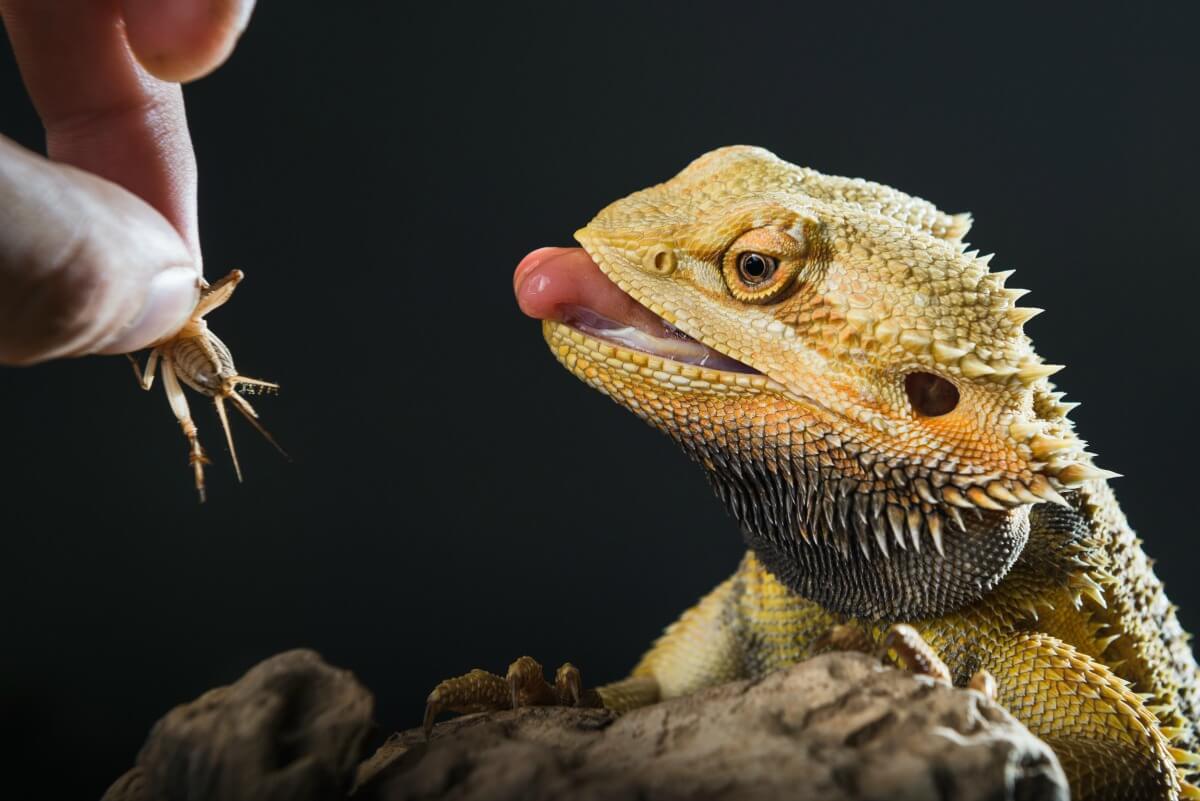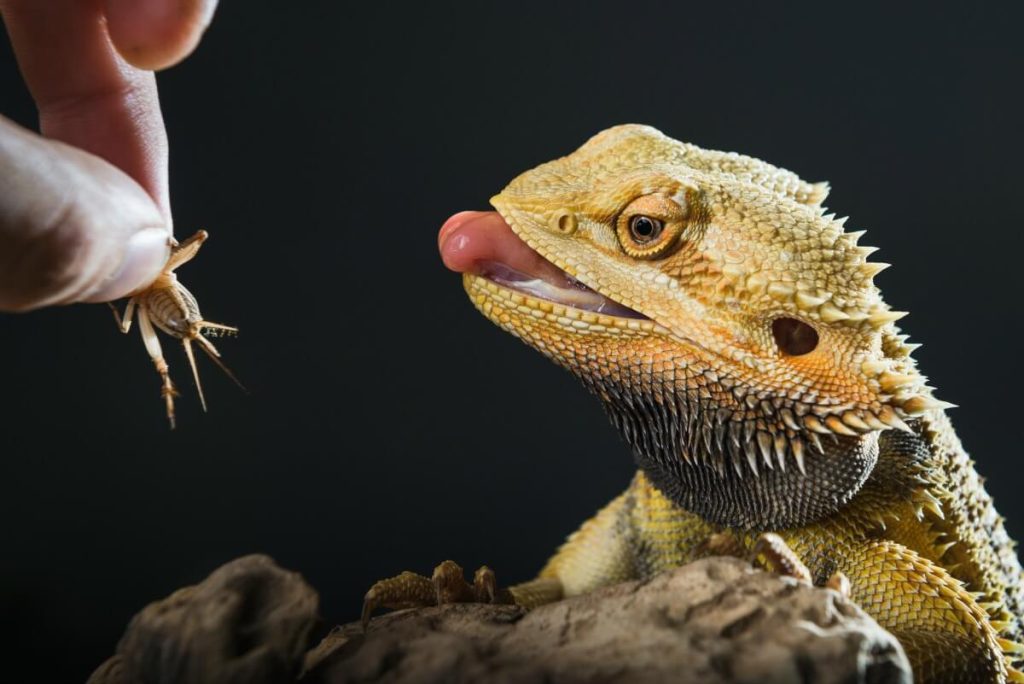Bearded dragons are one of the most popular pet reptiles, loved for their unique appearance and friendly demeanor. However, many owners struggle with keeping their dragons at a healthy weight. If you’re looking to fatten up your bearded dragon, there are a few key tips to keep in mind.
In this article, we’ll explore seven effective ways to help your bearded dragon gain weight and maintain a healthy, happy lifestyle. From adjusting their diet to creating the perfect habitat, these tips are sure to help your dragon thrive. So if you’re ready to give your bearded dragon the best care possible, let’s dive in!
Bearded dragons require a balanced diet to maintain their health and weight. Here are 7 tips to fatten up your bearded dragon: 1. Offer a variety of insects and vegetables. 2. Add supplements to their diet. 3. Increase feeding frequency. 4. Adjust feeding schedule. 5. Provide a basking area. 6. Ensure proper lighting and temperature. 7. Consult with a veterinarian for further advice.

7 Tips to Fatten Up a Bearded Dragon
Bearded dragons are one of the most popular reptiles kept as pets. They are docile, easy to care for, and have a friendly personality. However, they can be picky eaters, and some may have difficulty maintaining a healthy weight. If your bearded dragon is looking a little thin, there are several tips and tricks you can try to fatten them up.
1. Feed them a varied diet
Bearded dragons need a diverse diet to get all the nutrients they need. In the wild, they eat a variety of insects, plants, and even small animals. In captivity, they can be fed a combination of insects, vegetables, and fruits. Offer a variety of insects such as crickets, mealworms, and waxworms, as well as leafy greens like collard greens, kale, and turnip greens. Fruits like strawberries, blueberries, and mangoes can also be offered as a treat.
To ensure your bearded dragon is getting a balanced diet, it’s important to dust their food with calcium and vitamin D supplements. A lack of calcium can lead to metabolic bone disease, which can cause deformities and even death.
2. Increase feeding frequency
If your bearded dragon is not gaining weight, try increasing the frequency of their meals. Instead of feeding them once a day, split their food into two meals. This will help to increase their calorie intake and encourage weight gain.
3. Offer larger prey items
Bearded dragons can be fed a variety of insects, but some may be too small to provide enough nutrition. If your bearded dragon is not gaining weight, try offering larger prey items like adult crickets or mealworms. These insects are higher in protein and fat, which can help to fatten up your bearded dragon.
4. Control the temperature
Bearded dragons are ectothermic, which means they rely on external sources of heat to regulate their body temperature. If their enclosure is too cold, they may have difficulty digesting their food, which can lead to weight loss. Make sure their enclosure has a basking spot with a temperature of around 95-100°F and a cooler side of around 80°F. This will ensure they are able to properly digest their food and absorb the nutrients they need.
5. Offer live prey
Some bearded dragons may prefer live prey over dead insects. Live prey can be more stimulating for them and can encourage them to eat more. Offer live crickets or mealworms and watch as your bearded dragon pounces on their prey.
6. Soak your bearded dragon
If your bearded dragon is dehydrated, they may lose weight. Soaking your bearded dragon in a shallow bowl of warm water can help to hydrate them and encourage them to eat. Soak them for around 15-20 minutes, and make sure to supervise them at all times.
7. Monitor their weight
It’s important to monitor your bearded dragon’s weight to ensure they are maintaining a healthy size. Weigh them regularly and keep a record of their weight. If you notice a significant weight loss or gain, it’s important to consult a veterinarian.
In conclusion, if your bearded dragon is looking a little thin, there are several tips and tricks you can try to fatten them up. By feeding them a varied diet, increasing feeding frequency, offering larger prey items, controlling the temperature, offering live prey, soaking them, and monitoring their weight, you can help your bearded dragon maintain a healthy weight and live a happy life.
Frequently Asked Questions
What are the signs that my bearded dragon is underweight?
There are a few signs to look out for if you suspect that your bearded dragon is underweight. Some of these signs include a visible indentation on the dragon’s back, a lack of muscle mass, and a general lethargy. In severe cases, you may be able to see the dragon’s ribs or other bones through its skin.
If you notice any of these signs, it’s important to take action to help your bearded dragon gain weight. Feeding it a healthy, well-balanced diet and making sure it has a warm, comfortable habitat are key steps in helping it regain its strength and vitality.
Can I feed my bearded dragon too much?
Yes, it is possible to overfeed your bearded dragon, which can lead to health problems. In general, you should aim to feed your dragon a diet that is about 80% vegetables and 20% insects. You can adjust the portion sizes based on the dragon’s age, size, and activity level.
It’s important to monitor your dragon’s weight and adjust its diet as needed to make sure it is maintaining a healthy weight. You should also be careful not to leave food in the dragon’s habitat for too long, as this can attract bacteria and other harmful organisms.
What types of vegetables should I feed my bearded dragon?
Bearded dragons can eat a variety of vegetables, including kale, collard greens, turnip greens, mustard greens, and dandelion greens. It’s also a good idea to include some squash, carrots, and sweet potatoes in the dragon’s diet to provide additional nutrients.
Make sure to wash all vegetables thoroughly before feeding them to your dragon, and chop them into small pieces to make them easier to eat. You can also offer your dragon some fruits as treats, but these should be limited to no more than once a week.
What types of insects should I feed my bearded dragon?
Some of the best insects to feed your bearded dragon include crickets, mealworms, and superworms. You can also offer your dragon some waxworms or silkworms as treats, but these should be limited in quantity as they are high in fat.
It’s important to make sure that any insects you feed your dragon are gut-loaded, which means that they are fed a nutritious diet before being offered to your dragon. This ensures that your dragon is getting the most nutrients possible from its food.
How often should I feed my bearded dragon?
The frequency of feeding your bearded dragon will depend on its age and size. Younger dragons will need to be fed more frequently than older ones. In general, you should plan to feed your dragon once or twice a day, and adjust the portion sizes based on its age and activity level.
It’s also important to make sure that your dragon has access to fresh, clean water at all times. You can also mist its habitat with water to help keep it hydrated and healthy.
In conclusion, taking care of a bearded dragon is not a difficult task. By following these seven tips, you can make sure that your bearded dragon stays healthy and happy. From providing them with a varied diet to ensuring they have the right temperature and lighting, these tips will help fatten up your bearded dragon in no time.
Remember, a healthy bearded dragon is a happy bearded dragon. So, take the time to provide them with the love and care they deserve. With a little effort, you can ensure that your bearded dragon lives a long and happy life.
In short, if you want your bearded dragon to be happy and healthy, you need to pay attention to their diet, environment, and overall care. By following these seven tips, you can ensure that your bearded dragon thrives and becomes the perfect addition to your family. So, give your bearded dragon the love and care they need and watch them grow into a happy, healthy pet.


